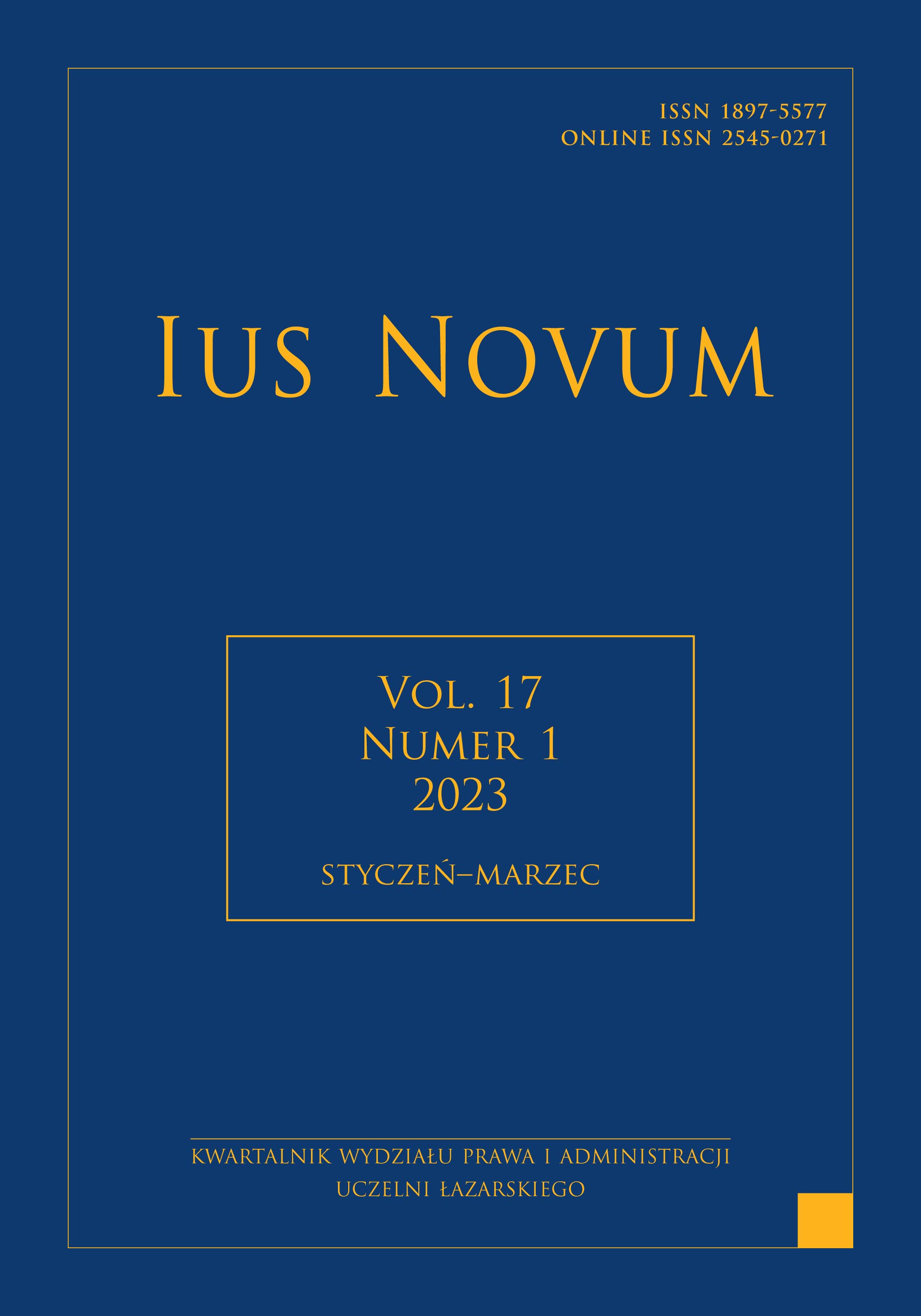Abstract
The subject of the article is regulations concerning the escape of a person legally deprived of liberty, that are in force in countries that have a Germanic legal tradition. The analysis of German, Swiss, Austrian and the Principality of Liechtenstein’s law is conducted against a background of Polish solutions. The aim of the study is to present similarities and differences between the solutions adopted in particular German-speaking countries, as well as between these solutions and the regulations contained in the Polish Penal Code.
References
Barton S., w: AnwaltKommentar StGB, red. K. Leipold, M. Tsambikakis, M.A. Zöller, Heidelberg – München – Landsberg – Frechen – Hamburg 2015.
Delnon V., Rüdy B., w: Basler Kommentar. Strafrecht II. Art. 111–392 StGB, red. M.A. Niggli, H. Wiprächtiger, Basel 2013.
Eser A., w: Schönke/Schröder Strafgesetzbuch Kommentar, A. Eser i in., C.H. Beck 2014.
Fischer T., Strafgesetzbuch mit Nebengesetzen, München 2015.
Helm M., Das Delikt der Gefangenenbefreiung, Berlin 2010.
Hilgendorf E., w: Strafrecht. Besonderer Teil. Lehrbuch, G. Arzt i in., Bielefeld 2015.
Kardas P., Teoretyczne podstawy odpowiedzialności karnej za przestępne współdziałanie, Kraków 2001.
Kühl K., Heger M., Strafgesetzbuch. Kommentar, C.H. Beck 2014.
Maier G., Aktuelles Strafrecht für Ausbildung, Prüfung und Praxis, t. I, Karlsfeld 1999.
Mayer M., Die Befreiung von Gefangenen, Leipzig 1906.
Poniatowski P., Przestępstwa uwolnienia osoby prawnie pobawionej wolności (art. 242 i 243 k.k.), Warszawa 2019.
Trechsel S., Affolter-Eijsten H., w: Schweizerisches Strafgesetzbuch. Praxiskommentar, red. S. Trech-sel, M. Pieth, Zürich 2013.
Wolter J., w: Systematischer Kommentar zum Strafgesetzbuch, t. II, §§ 46–122 StGB, red. J. Wolter, Köln 2012.

